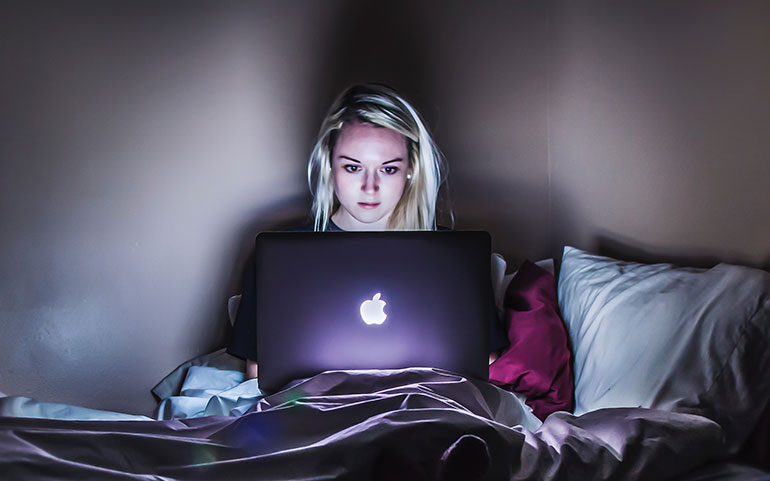
Screens and Sleep
Sleep is one of the most important elements to any student or athlete, and a good night’s sleep is crucial to success. According to two researchers at Sleep Health, “students with a healthy sleep schedule of 8 hours or more have a 0.14 GPA advantage over students with less sleep.” However, many of my peers – myself included – have found getting those crucial hours of sleep to be harder and harder every day, either due to the stress of
“According to a nationwide poll, more than 87 percent of high-school students sleep less than the recommended 8 to 10 hours.”
I try to maintain an average of 8 to 10 hours of sleep every school day, but it’s not always easy. One of the biggest factors for me is the temptation of using technology instead of sleeping. I often find myself on my iPhone, texting friends and updating my social media, thinking it will only take a couple of minutes; however, when I check the time, it’s almost 2:00 in the morning! Although I found it didn’t affect my grades or wellbeing at first, I soon began to lose concentration in classes, and my grades dropped as a result.
Luckily, this only lasted between the winter and spring term and as March break came around, I was able to finally complete all of my piled-up school work and get a good rest. During the break, I knew I needed to change my habits and decided to create a new strategy for getting sufficient sleep during the school term.
First, I would limit the use of my school laptop and phone an hour before I went to bed. This is because blue light from screens reduces melatonin produced in the body, an essential hormone that controls your sleeping and waking cycle.
Blue light from devices can be detrimental to sleep. Reducing the brightness of the device will help, but the best solution is to remove them from your bedroom. Second, I would limit my intake of caffeinated and sugary foods before I would sleep. Finally, I would remove all
After adopting these strategies when school started again, I found that I was less tired throughout the day, but also generally happier and more interested in the subject at hand. Finally, my marks began to improve as well, and stayed that way until the summer break.
This experience with sleep has taught me many valuable lessons. First, that I must identify a problem, as I often was blaming myself and would study for hours more than I needed to and still get a bad grade. Determining the issue of sleep deprivation allowed for me to research how to tackle the problem. Second, that I must find a solution to my problem and March break allowed for me to devise a solution and a strategy to tackle my sleep deprivation. If you are suffering from sleep deprivation due to screens, feel free to follow my specific strategy, but if you are suffering from any problem in general, I would advise to use my general strategy of identifying and solving.


